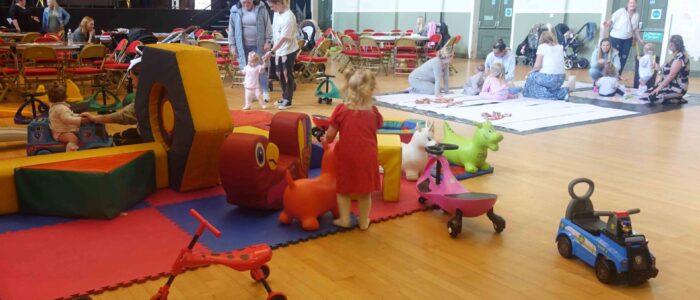Family Nurse Partnership Celebrates 10 years
The Family Nurse Partnership (FNP), which works with young parents across Forth Valley, has celebrated its 10th birthday.
During this time staff have worked with hundreds of first-time parents who have given birth to 650 babies over the past ten years.
To mark the milestone anniversary the service held an event at the Albert Halls in Stirling. Over 40 parents, past and present, attended with their children and enjoyed taking part in Bookbug sessions, soft play and other activities.
Everybody had a great time and parents said they enjoyed the event and the opportunity to meet with each other too.
Family Nurse, Dani Stewart, said: “It was great to see so many families come along with their children and also see them meeting each other, some for the first time. One of the families I work with said it was great to meet other families on the programme.
“A real highlight was watching the families join in with the Bookbug session and it was a real joy to see the smiles between the little ones and their parents.”
The FNP programme is an evidence-based, intensive home visiting programme for first time parents aged 19 and under (and eligible 20- to 24-year-olds) which underpins real changes in the lives of families. It is delivered by specially trained nurses and midwives who provide support from early pregnancy until the child reaches the age of two.
Family Nurses develop strong relationships with local families, identifying their strengths and working with them to help achieve their goals and aspirations, both for themselves and their children.
The service was launched in 2014, and staff include a Lead Nurse, 11 Family Nurses, two Supervisors, a data manager, and an administrator. There is also regular support provided to the nurses by a psychologist.
Additional Information
The Family Nurse Partnership was developed by Professor David Olds at the University of Colorado, Denver, USA. With over 40 years of research, the programme has been shown to produce many benefits, including:
- improvements in antenatal health
- improved early language development and academic achievement for children
- confident parenting practices
- increased uptake of education and employment opportunities for parents





